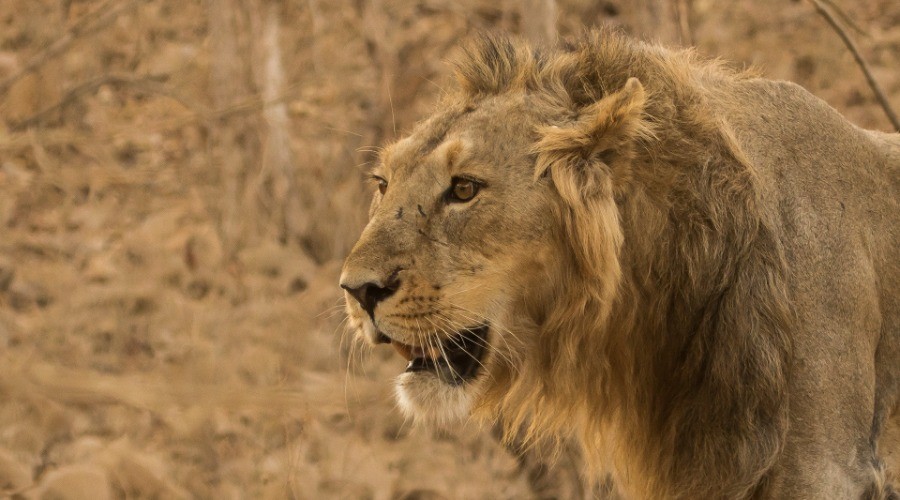Madhya Pradesh wants the lion’s share
The lions of Gir are stuck in a custody battle between Gujarat and Madhya Pradesh
Gujarat, Gir, and Asiatic lions. This is a triad of words that has gone hand-in-hand for the better part of a century. That’s about how long Gujarat has been the home of the only known population of this big cat in the world. So it isn’t too surprising that the 2013 Supreme Court ruling to shift Gir’s lions to Madhya Pradesh hasn’t yet been followed by the Gujarat government.
The Gir Forest National Park in Gujarat has provided room for a now-healthy population of Asiatic lions as well as Maldharis, the semi-nomadic tribe that still has access to the area and holds rights to graze their livestock. These big cats were on the brink of extinction by 2010, with a small population of 411 individuals. But their number has been on the rise since then. In 2015, the lion population was estimated at 523 individuals according to the Asiatic Lion Census. This number was 650 by 2017. This rise has been enough for the Wildlife Institute of India to suggest that Gir is overcrowded, and that some lions would fare better if translocated to another area, namely, the Kuno-Palpur Wildlife Sanctuary in north western Madhya Pradesh.
Kuno in Madhya Pradesh was selected as a reintroduction site because it had been home to the cats till about 1873, which is when they were locally hunted to extinction.
In Gujarat, the Gir National Park, with an area of under 1500 square kilometres, is now beginning to feel too small for Asia’s only surviving lions. Surrounded by human habitation, it cannot expand any further. Lions often move out of the park, but their relationship with the people who share living space with them is also unique – the big cats of Gir are known for their peaceful coexistence with their neighbours.
The neighbouring states of Gujarat and Madhya Pradesh, though, share a different relationship when it comes to Asiatic Lions. The 2013 Supreme Court order to move the lions to Kuno resulted after a long-drawn out legal battle between the two states. Since then, the Gujarat government has been trying to find ways around their legal responsibility – first claiming the unsuitability of the prey base in Kuno, then attempting to convince MP officials to retain the ‘Gir’ name even in Kuno, and now simply turning a blind eye to the issue, stating that this is a ‘prestige’ issue for the state.
Meanwhile, in Kuno, the people of 24 villages were already rehabilitated twenty years ago, in lieu of this translocation-to-be! Conservationists have been voicing concern about the risk of a single population – diversifying the lions’ habitat would mean protecting the species from any natural calamity, illness or other unforeseen event. And since the sanctuary is ready to be populated, in December the MP government has hinted at releasing tigers in the sanctuary instead. We can only hope that the state of Gujarat will consider the issue again, and do what the lions of Gir need them to do.
Cover photograph of a male Asiatic Lion for illustrative purposes only; courtesy Wikimedia user UdayKiran28 under the Creative Commons Attribution-Share Alike 4.0 International license.
